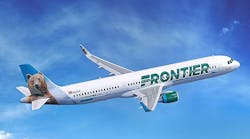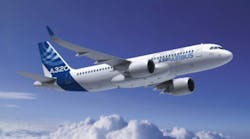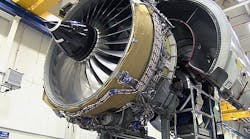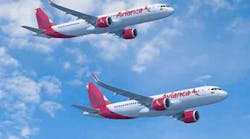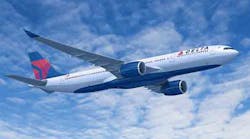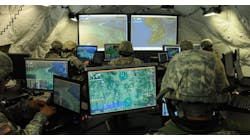Frontier Airlines, the Denver-based low-cost carrier, confirmed an order with Airbus SAS for 12 new aircraft, all of them incorporating the “current engine option” rather than the “new engine option” (a design referred to as the A320neo that will have its commercial debut later this year.) The jets ordered by Frontier will be 10 A321 and two A320 aircraft, an order totaling $1.3 billion at current rates.
The schedule for deliveries was not announced.
“This announcement paves the way for us to grow, modernize and renew our fleet while helping us build a strong foundation for the future,” stated Frontier Airlines president Barry Biffle. “We remain focused on our ‘Low Fares Done Right’ business model for long-term success, and we look forward to working with Airbus to achieve it.”
As noted by Airbus, this marks the second time in less than a year that Frontier has ordered the A321, the largest member of the Airbus A320 family. Including the jets in the new order, Frontier has 101 Airbus single-aisle aircraft on order, and its current in-service fleet consists of 34 A319s and 21 A320s.
The A320 series are twin-engine narrow body jets for short- to medium-distance routes, carrying up to 220 passengers on the larger models. Both the A320 and A321 are among the models to be built by Airbus at its new, $600-million manufacturing plant in Mobile, Ala.
Airbus contends the A320 family of jets is the world’s best-selling single aisle product line with nearly 11,700 orders to date and over 6,500 aircraft delivered.
Frontier took delivery of its first Airbus aircraft in 2001 and now operates an all-Airbus, all-A320 family fleet. It’s a strategy that allows the airline to optimize efficiency and economy by streamlining crew training and maintenance operations.
Each of the jets in Frontier’s new order will incorporate lightweight tailwing fixtures — 2.4-m / 94-in.-long composite devices on the wingtips that help to help to reduce fuel consumption by up to 4%. They also are credited with allowing the jets to achieve either a range extension of 100 nautical miles or increased payload of up to 450 kilograms/992 lb.
